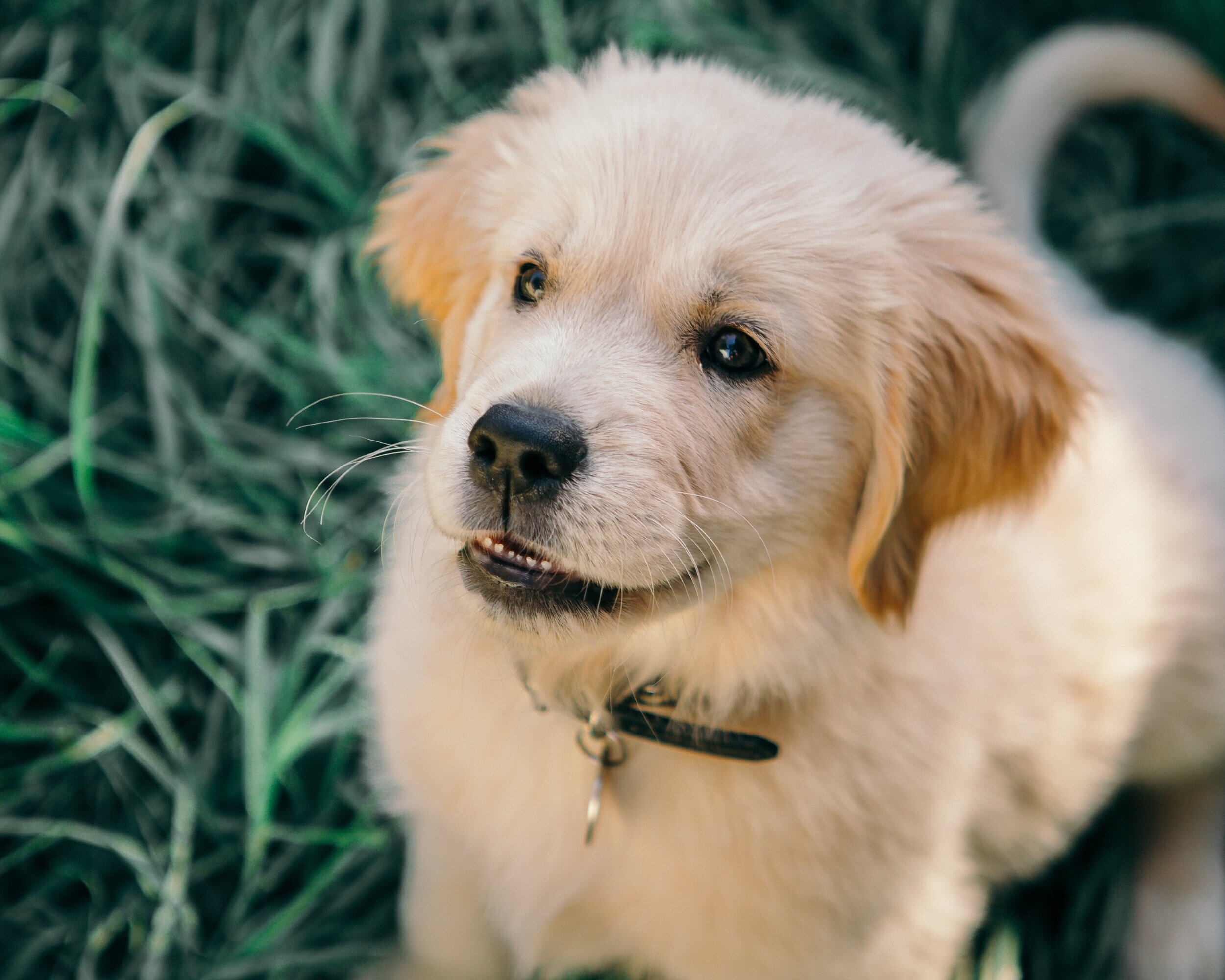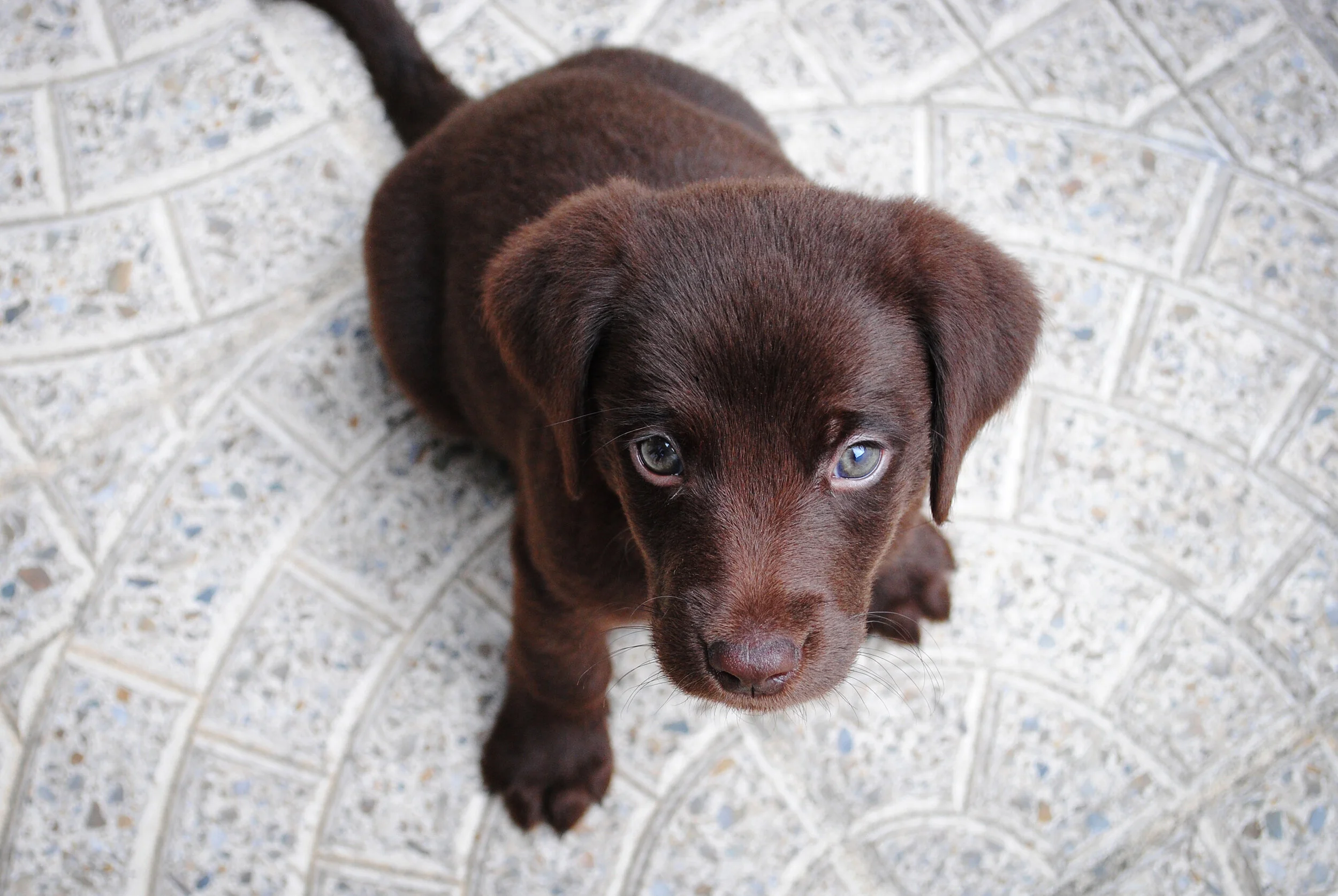Puppies are cute little bundles of energy and curiosity. Owning a new puppy can bring lots of excitement, love and enjoyment. There are many challenges with bringing a puppy into your home and how you respond to those challenges can shape the behaviour of your pet for years to come.
Establishing good habits in the beginning will be rewarding for many dog years of happiness to come. Here are some tips to get you started on training your new puppy.
Start training as soon as they come home
It is easy to let your puppy get away with bad behaviour in the beginning, as they are so cute and little. But your puppy will learn from every experience so it is important to use each opportunity to teach them how you would like them to behave. Remember to keep it positive, gentle and consistent.
Decide on house rules early
Before your new puppy comes home, determine the rules that they will need to abide by. Will they be allowed on the bed, couches or other furniture? Are there parts of the house that are off limits? Determine the rules early on so there is no confusion for both of you.
Keep it positive
It is important to understand that your puppy is new to the world and right now they are a blank canvas. The way you shape your puppies behaviour is important and we always want to take a positive approach first and show our puppy how we ‘want’ them to behave.
Using things like treats, praise, play etc are how we encourage them to do more of what we want and ensuring we are balanced in our approach is crucial.
Teach your puppy their name
Your puppy’s name is their life long connection to you. Teach them their name by calling it out when you want their attention. As soon as they look at you, praise them or give them a treat. Repeat this over a few days or until they learn their name. Remember to only use their name in positive situations. This will encourage them to respond each time you say it, which is great for overall control and future training purposes!
Help your puppy settle into their new home
Help them settle in by showing your puppy around their new home. Let them know where their water, food, toys and bed are located. Show them where to go to the toilet. Offer them a comfortable sleeping place, away from drafts and off the floor. Your puppy will benefit from short periods of time left alone in the comfort and safety of their own sleeping space. You can also offer a warm wheat pack or ticking clock near their bed to mimic mums heartbeat and soothe them into their new environment.
Reward good behaviour
Use a combination of small treats, praise, pats and toys to motivate and reward your puppy’s good behaviour. For training commands, food treats can work well in the beginning. However as your puppy starts to learn the commands, gradually phase out the treats and start replacing them with praise, pats or even their favourite toy. They will soon learn to work for these other forms of rewards with the occasional treat instead.
Discourage biting and chewing
When puppies play, they often bite, chew and mouth people’s hands, limbs and clothing. This may seem cute when they are a puppy, but the novelty wears off as they start to grow. To teach your puppy to play gently, pretend you are in pain when they bite you, by giving a high pitched yelp. They should instantly stop. If so, praise them. Continue doing this each time they bite and they will start to learn to play gently. If this doesn’t work, you can trade a chew toy for your hand or clothing. This works for shoes too!
Establish a toilet routine
Toilet training is generally high on the priority list for puppy owners. Patience, planning and plenty of positive reinforcement will go a long way. It is also good to have a carpet cleaning plan in place, as accidents will happen. Until your puppy has had their vaccinations you will need to find a place outdoors that’s inaccessible to other animals to practice. Give your puppy plenty of opportunities to go outside and reward them when they go where you want them to go.
Positive reinforcement also means refraining from punishing when they have accidents indoors. Common times to take your puppy out to toilet train include:
When you wake up
Just before bedtime
After your puppy eats or drinks water
When you puppy wakes from a nap
During or after physical activity
Teach basic commands
The early months of your puppy’s life are the perfect time to teach some basic obedience skills and commands. Teaching these skills not only strengthens the bond between you and your puppy but can also help them settle in as a well-mannered, happy member of your family.
Our puppy school classes are currently unavailable. We will update you when it becomes available again.
Be sociable
Just like obedience training, proactive socialisation is important for your puppy. Between approximately 3-17 weeks of age puppies go through a critical socialisation period. The experiences that your puppy has during this time can influence and shape their behaviour well into the future.
Socialising your puppy must be done in a safe and positive environment, such as puppy preschool. You can also take your puppy to meet with other puppies and dogs of your family or friends. It is important to make sure that the other dogs and puppies are friendly, healthy and up to date with their vaccinations.
Integrate training into your daily time together
Puppies have short attention spans so training sessions should be brief, but occur on a daily basis. You don’t need to set a specific time for training each day, but rather integrate training into your daily time together. This could include asking your puppy to “sit” before receiving food or telling your puppy to “come Fido” when you call their name.













